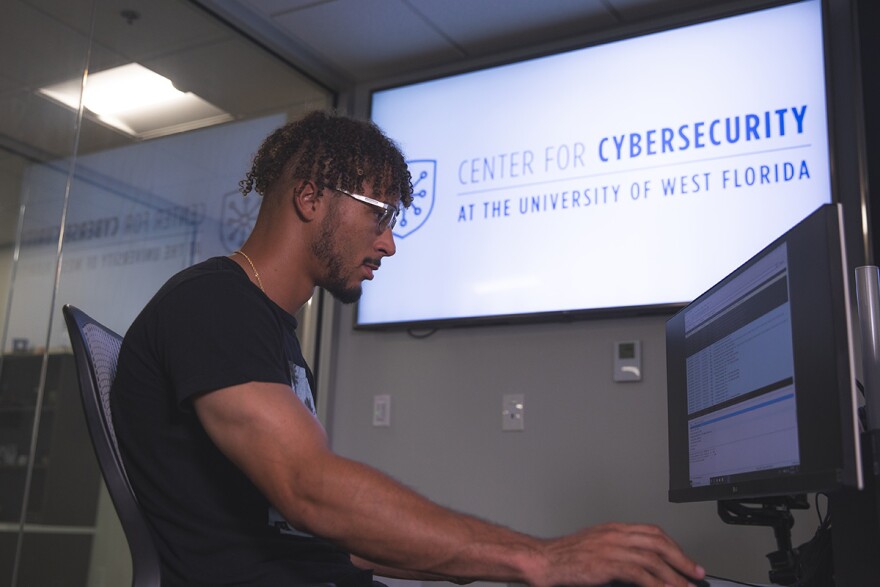The University of West Florida’s Center for Cybersecurity has received a $2 million award to expand a free, statewide cybersecurity training program for public employees, adding 41 online courses that run from September 2025 through June 2026.
The money, provided by the Florida Legislature through Cyber Florida’s FirstLine initiative, will underwrite new certification prep, advanced technical instruction and hands-on cyber skills exercises aimed at strengthening day‑to‑day defenses across state and local agencies. Eligible participants include employees at state agencies as well as county and city governments, K‑12 school districts, public colleges and universities, and tribal and territorial governments. Training is offered at no cost to eligible personnel.
“This program will equip Florida’s government workforce with the latest knowledge and skills to defend against evolving cyber threats,” said Dr. Eman El‑Sheikh, associate vice president at the UWF Center for Cybersecurity. “By integrating AI and emerging technologies, we’re not just meeting today’s challenges, we’re building stronger, smarter defenses and strengthening Florida’s cyber resilience.”
According to the university, the expanded schedule includes certification preparation for EC‑Council’s Certified Ethical Hacker and CompTIA SecurityX, as well as EC‑Council’s Generative AI for Cybersecurity. Technical offerings include AI and machine learning for cybersecurity; governance and risk management with AI; threat intelligence with AI; and virtualization and Docker technologies for cyber resiliency. One‑day, scenario‑based exercises will focus on incident response and resilience planning for government leaders, essential cyber defenses, applications of generative AI in cybersecurity and practical prompting skills.
The award builds on a period of rapid growth for UWF’s cyber and computing ecosystem. In late August, the regional economic development board Triumph Gulf Coast approved $32.5 million for a decade‑long expansion of UWF’s cybersecurity, artificial intelligence and computational research capacity. That long‑horizon investment funds facilities, equipment and personnel to compete for external research grants; the new $2 million grant supports near‑term workforce training for practitioners in the field. Together, the initiatives aim to position Northwest Florida as a hub for both innovation and talent development.
UWF Interim President Manny Diaz Jr. framed the training expansion in terms of public benefit.
“This investment in cybersecurity training is vital to protecting Florida’s infrastructure and communities,” he said. “Through this program, UWF continues to play a leading role in building a highly skilled cyber workforce and serving as a catalyst for innovation and resilience in our state.”
The FirstLine initiative is part of the state’s broader push to bolster cyber readiness at all levels of government. Public agencies—from school districts to utilities and city halls—manage sensitive data and critical systems while operating under tight budgets and staffing constraints. By centralizing and subsidizing training, state leaders aim to standardize baseline skills, widen access to modern tools and practices, and reduce the likelihood and impact of cyber incidents.
The need for such efforts has been underscored by recent events close to home. In 2019, the City of Pensacola was hit by a ransomware attack from the Maze group that disabled phones, email, and online bill payment systems, exposed files belonging to the city, and forced officials to spend hundreds of thousands of dollars on recovery and identity protection for more than 50,000 residents. In 2024, Pensacola again disclosed a network security breach that disrupted online bill pay and phone systems, while exposing personal information such as Social Security and driver’s license numbers. And in 2023, the First Judicial Circuit reported a cyberattack that hampered court operations across four Panhandle counties and compromised employee data. Together, these incidents illustrate how digital disruptions can affect essential services and erode public trust—precisely the kinds of risks the new training initiative is designed to mitigate.
For more information or to apply, eligible government personnel can visit uwf.edu/cybertraining.


